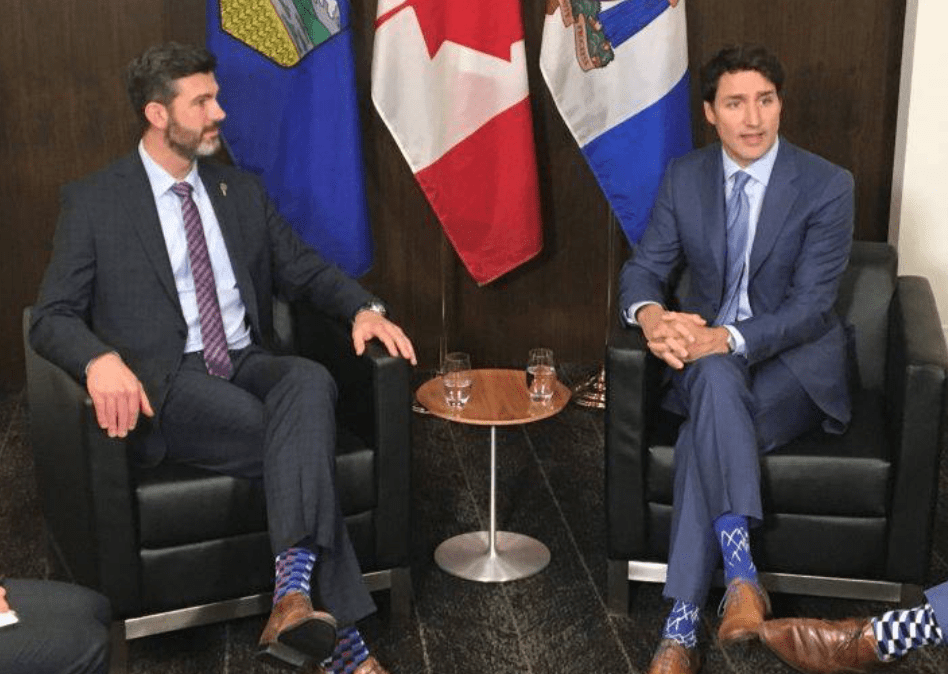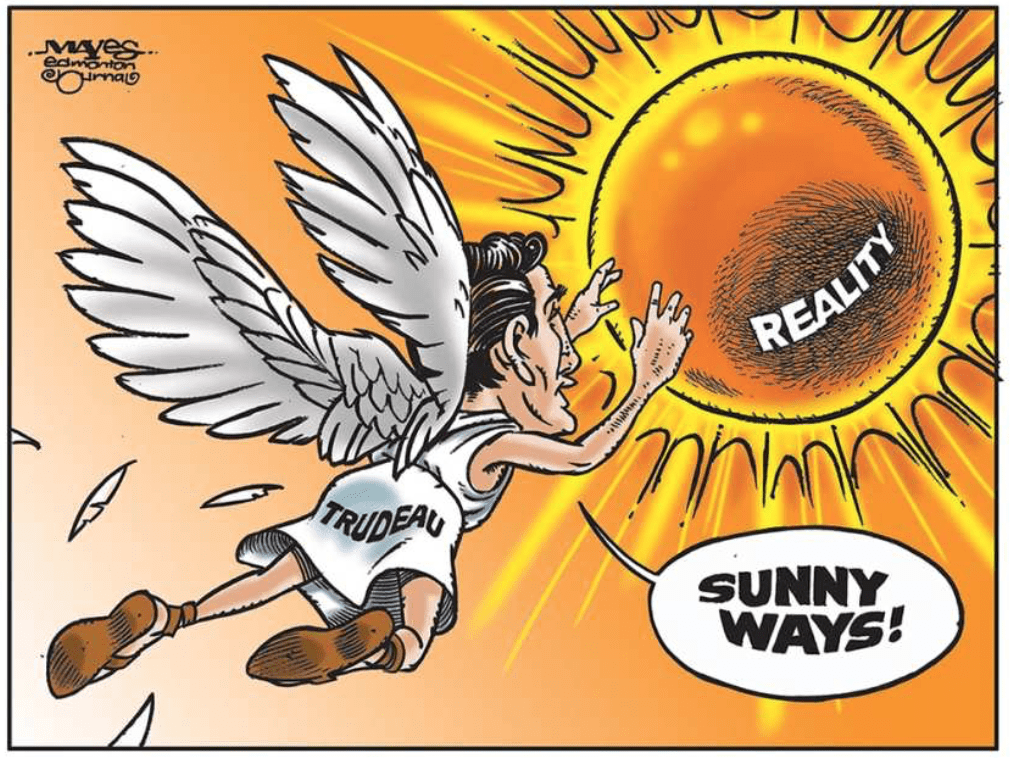Prime Minister Justin Trudeau and Edmonton Mayor Don Iveson had perfect spring weather last week for a GQ-style photo op and press conference.
Smartly turned out in similar dark blue suits, the two youngish (Trudeau is 47 and Iveson is 39) politicians looked picture-perfect against the background of the North Saskatchewan River valley as Trudeau made a brief visit to Alberta's capital. But appearances can be deceiving.
Two or three years ago the pair would have had reason to be confident.
Trudeau was still riding quite high in the national polls. The SNC Lavalin debacle and federal Liberal caucus rifts weren't yet on the horizon. Though not beloved in western Canada, Trudeau could pop into Edmonton for a visit without worrying about oil-patch populist protestors calling for his head.
Back then Iveson was the mayor of a city on the move. In 2017 he was trumpeting Edmonton as the youngest, fastest growing city in the country. A couple of new mirrored skyscrapers were well under construction in the burgeoning ICE district downtown and although the economy was soft, the provincial capital had escaped the worst of the downturn that was laying waste to Calgary.
But times have changed.
And, while Trudeau has many additional challenges of his own making, both men are facing a common adversary: Jason Kenney.
Kenney targeted Trudeau so often during the provincial election campaign in the spring, a casual observer might have wondered just who the UCP leader was aiming to defeat.
The repeal of Alberta's carbon tax and plans to fight the federal Liberal version of the same levy were the linchpins of Kenney's election platform. And that conflict over carbon pricing continues.
Trudeau didn't shy away from the issue during the Edmonton press conference. If the Alberta carbon tax is killed, it's apparent he plans to take action.
"What we're going to ensure is that nowhere across the country will it be free to pollute," he told reporters.
But he said it at a staid and staged press conference, not in the proverbial public square. Trudeau's popularity in Alberta, even in slightly more centrist Edmonton, is at a disastrously low ebb for the federal Liberals. And Kenney, along with a tight-knit cadre of other conservative premiers, will actively work with CPC Leader Andrew Scheer to unseat Trudeau in the fall.
For Iveson, the immediate concern is not electoral popularity. The mayor, who won with 73 per cent of the vote in 2017, doesn't face municipal voters again until fall 2021.
But his job is to ensure the prosperity of Edmonton and Kenney's provincial government could be a potential threat to the city's well being.
The UCP won the election on a platform of fiscal conservatism and budget spending will be cut. Edmonton is heavily dependent on the public purse, with government, healthcare and post-secondary payrolls fuelling municipal coffers.
While Calgary faded and failed when the oil patch dipped into oil-price driven recession in 2015-2016, Edmonton fared better thanks to the NDP's decision to keep the government wallet open.
Iveson is concerned enough about the future of the city to sound an alarm. With deep partisan divisions between Edmonton, which voted largely NDP, and Calgary, there is concern in the capital about possible reprisals.
Iveson warned against the pitting of Edmonton against Calgary.
"We can do what so many others have done: treat one city as the economic capital and the other as a political afterthought. Divide the two cities and pit them against each other. Or we can decide to… leverage the complementary strengths of both metro Edmonton and Calgary, and build a globally competitive Alberta in the process," he said in his early May State of the City address.
Kenney has said Edmonton will remain "deeply important" to his government. But in a tightening budget environment that won't be enough to maintain all those public jobs in the city.
Trudeau and Iveson have reason to be concerned about Kenney's influence on the provincial and federal scene. At the recent press conference there were some hints they may consider each other natural allies.
They discussed the benefit of municipalities receiving money directly from the federal government, without flowing some grants through provincial hands.
"Good to see that the federal gov't understands that working directly w/ cities is a more efficient way of getting things done," Iveson tweeted after meeting with Trudeau.
While the sun was out in May for their press conference, Trudeau and Iveson must watch how Kenney's long shadow will affect both their political fortunes.
Photo Credit: Global News








